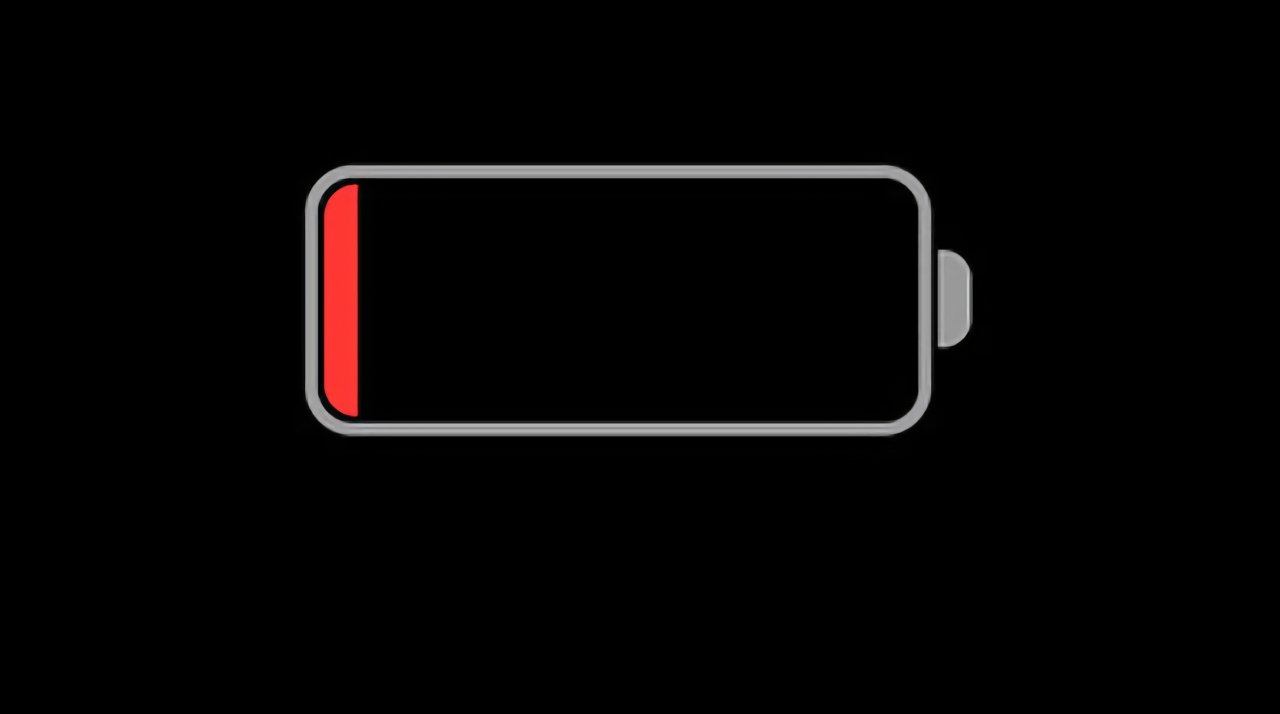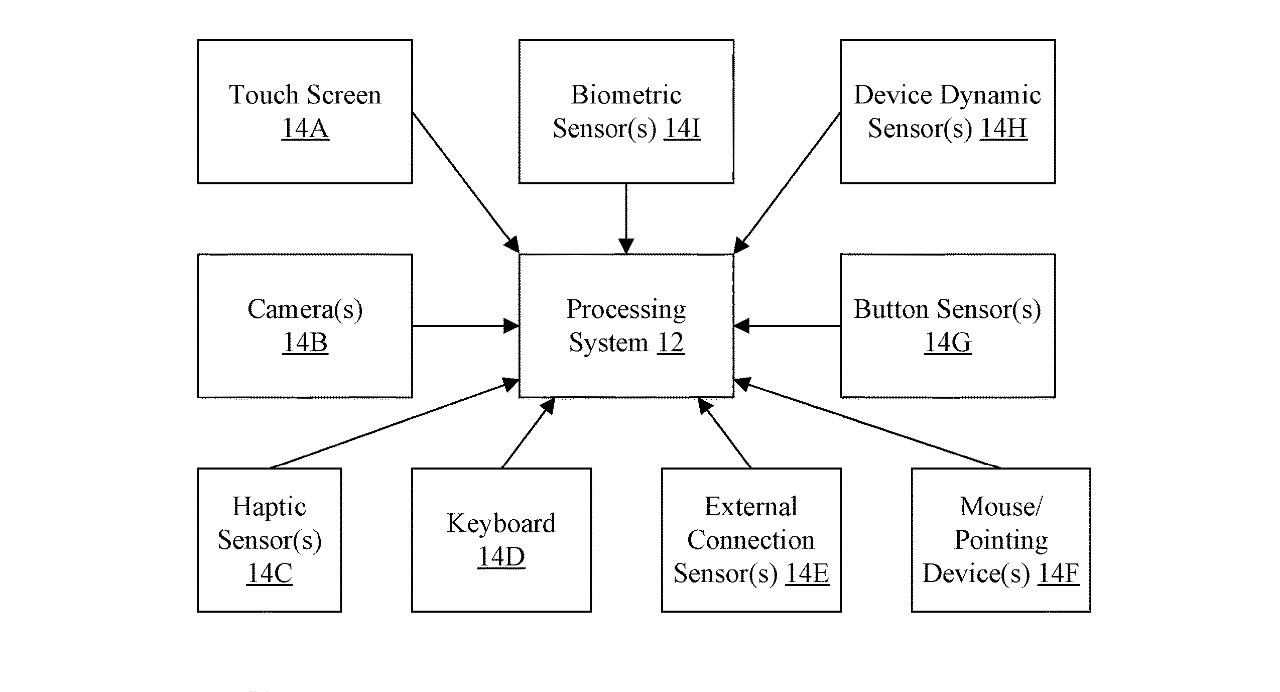Future iPhone, Mac may power down when you look away
From MacBook Pro to iPad, Apple is investigating the use of gaze detection, and attention sensing, to know when you're not using a device and it can save battery power.

Apple wants to preserve battery power every way it can
Apple devices already save power by turning themselves off, or dimming their screen, but it's quite crude. If you haven't touched the device for a certain period of time, if you haven't talked to Siri through it, then it powers down.
Rather than relying on this stopwatch kind of approach, though, Apple wants to have devices know sooner, and for certain, whether you need them at full power or not.
"Attention detection service," is a newly-granted patent that is concerned with figuring out whether or not you're interested in what the device is doing.
"The attention detection service may monitor various peripheral devices in the device for indications that a user is paying attention to the device," says the patent. "Typically, mobile devices are designed to operate from a mobile power source such as a battery... Accordingly the energy is a scarce resource that is desirable to conserve."
It is chiefly so that battery power can be conserved better, but Apple argues that it's also useful for devices that are plugged in.
"While other types of devices (e.g. devices that are plugged into the wall outlet) may not have as critical a need to conserve energy, such devices may wish to reduce energy usage for other reasons," it continues.
"For example, energy consumption is often correlated with an increase in thermal energy that needs to be removed from the device," says Apple. "Inefficient energy consumption can thus cause higher thermal energy in the system, requiring more cooling to extract the thermal energy."
Say you've started a podcast and put your iPhone down. Apple is proposing that the iPhone could recognize that you're not looking at the screen.
If the iPhone's microphone also detects that you're not saying anything, it can reasonably infer that it's fine to dim the screen.
It's really up to the device and operating system what it does with the information that you're disinterested. So the patent is devoted to how multiple sensors -- gaze detection, touch screens, and so on -- can determine if you care what the device is doing.
That's sometimes a harder job than it sounds. With an Apple TV 4K, for instance, it's difficult to know whether someone has left the room, or is utterly absorbed in "Schmigadoon!"

Detail from the patent showing just how many different types of sensors and peripherals could contribute to figuring out if you're awake
Apple TV 4K currently has a timer that can be set to turn off the device after 15 minutes, 30 minutes, an hour, and so on. But it only knows it's not being used if you have left it at the home screen.
You could start a "Lord of the Rings" movie on Apple TV 4K, for instance, then turn off your TV set and go out. The device has no way to know that you aren't glued to the minutes, hours, or entire month it takes Sean Bean's character to die.
However, if the Apple TV 4K can also know that your Apple Watch is now in the bathroom, it could pause for you. If it detects that you're using CarPlay, it can assume you're driving to work and have forgotten to switch off the Apple TV 4K.
Ultimately, future Apple devices may even figure out when the YouTube video you're watching is particularly dull, and skip to a better one.
This patent is credited to 13 inventors. That unusually high number includes two -- Kelsey Y. Ho and Benjamin Biron -- whose previous work includes how iPhones could orient their display by detecting your face.
Read on AppleInsider

Apple wants to preserve battery power every way it can
Apple devices already save power by turning themselves off, or dimming their screen, but it's quite crude. If you haven't touched the device for a certain period of time, if you haven't talked to Siri through it, then it powers down.
Rather than relying on this stopwatch kind of approach, though, Apple wants to have devices know sooner, and for certain, whether you need them at full power or not.
"Attention detection service," is a newly-granted patent that is concerned with figuring out whether or not you're interested in what the device is doing.
"The attention detection service may monitor various peripheral devices in the device for indications that a user is paying attention to the device," says the patent. "Typically, mobile devices are designed to operate from a mobile power source such as a battery... Accordingly the energy is a scarce resource that is desirable to conserve."
It is chiefly so that battery power can be conserved better, but Apple argues that it's also useful for devices that are plugged in.
"While other types of devices (e.g. devices that are plugged into the wall outlet) may not have as critical a need to conserve energy, such devices may wish to reduce energy usage for other reasons," it continues.
"For example, energy consumption is often correlated with an increase in thermal energy that needs to be removed from the device," says Apple. "Inefficient energy consumption can thus cause higher thermal energy in the system, requiring more cooling to extract the thermal energy."
Say you've started a podcast and put your iPhone down. Apple is proposing that the iPhone could recognize that you're not looking at the screen.
If the iPhone's microphone also detects that you're not saying anything, it can reasonably infer that it's fine to dim the screen.
It's really up to the device and operating system what it does with the information that you're disinterested. So the patent is devoted to how multiple sensors -- gaze detection, touch screens, and so on -- can determine if you care what the device is doing.
That's sometimes a harder job than it sounds. With an Apple TV 4K, for instance, it's difficult to know whether someone has left the room, or is utterly absorbed in "Schmigadoon!"

Detail from the patent showing just how many different types of sensors and peripherals could contribute to figuring out if you're awake
Apple TV 4K currently has a timer that can be set to turn off the device after 15 minutes, 30 minutes, an hour, and so on. But it only knows it's not being used if you have left it at the home screen.
You could start a "Lord of the Rings" movie on Apple TV 4K, for instance, then turn off your TV set and go out. The device has no way to know that you aren't glued to the minutes, hours, or entire month it takes Sean Bean's character to die.
However, if the Apple TV 4K can also know that your Apple Watch is now in the bathroom, it could pause for you. If it detects that you're using CarPlay, it can assume you're driving to work and have forgotten to switch off the Apple TV 4K.
Ultimately, future Apple devices may even figure out when the YouTube video you're watching is particularly dull, and skip to a better one.
This patent is credited to 13 inventors. That unusually high number includes two -- Kelsey Y. Ho and Benjamin Biron -- whose previous work includes how iPhones could orient their display by detecting your face.
Read on AppleInsider

Comments
so this becomes a non issue.
Having worked in an AT&T central office for over thirty years I occasionally was asked to give the nickel tour to electrical or computer engineering students. After showing them magical fiber optic, digital transmission equipment on the first floor I took them to the basement to the power plant and showed them the rows upon rows of giant lead/antimony storage batteries filled with hydrochloric acid, 800 amp rectifiers, and 800kw diesel generator that took over when commercial power failed. I’d point to the batteries and tell the youngsters, “Without that almost 200 year old technology sitting there none of the stuff I showed you upstairs would work... period.”
When you have 1,000,000,000 iPhones, even a little bit of energy savings can translate into huge reduction for the whole.